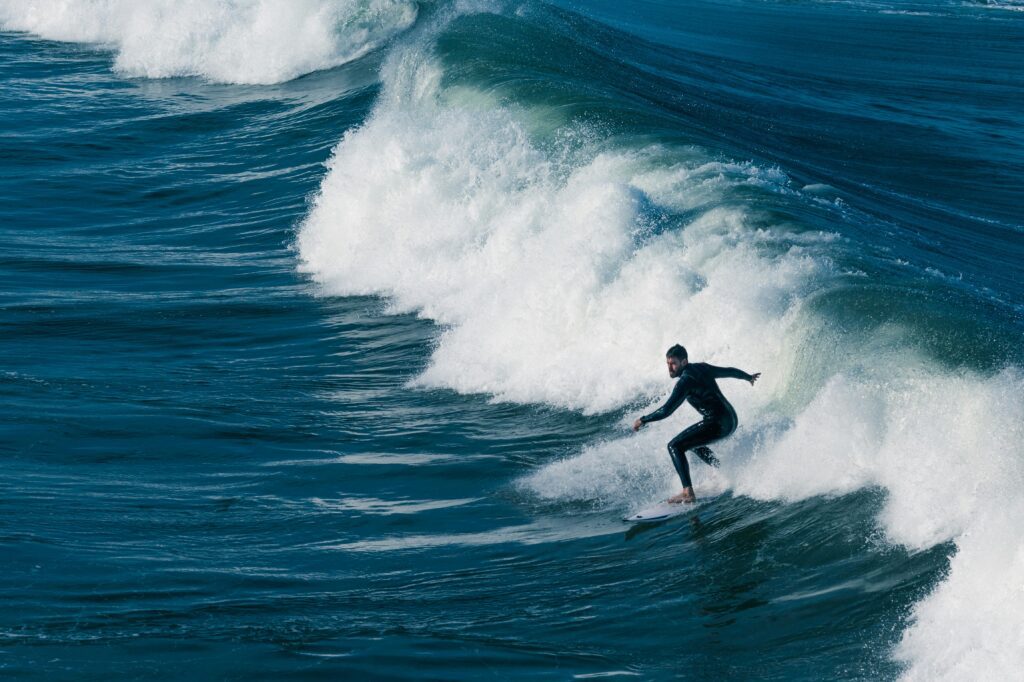In the realm of sports and recreation, surfing stands out not only for its exhilarating nature but also for its potential as a catalyst for social change. Beyond being a leisure activity, surfing has evolved into a platform for empowerment, particularly for marginalized groups around the world. This blog post will delve into the ways in which surfing serves as a tool for social change, empowering individuals and communities that have historically been sidelined or overlooked.
Breaking Down Barriers
Surfing as a Universal Language
Surfing possesses a unique ability to transcend cultural and linguistic barriers. Regardless of one’s background, ethnicity, or nationality, the ocean becomes a shared space where communication happens through the language of waves. This universal aspect of surfing breaks down barriers that might otherwise divide people, fostering a sense of connection and understanding among individuals from diverse backgrounds.
Accessible to All
Unlike some sports that require expensive equipment or specific physical attributes, surfing can be enjoyed by almost anyone. From coastal communities to landlocked regions with artificial wave pools, the sport has expanded its reach, making it more accessible to people of all ages and abilities. This inclusivity extends to individuals with disabilities, with adaptive surfing programs and specialized equipment enabling everyone to experience the joy of riding waves.
Challenging Stereotypes
Surfing has a rich history and culture often associated with certain stereotypes, such as the laid-back beach bum or the elite pro surfer. However, these stereotypes fail to capture the true diversity within the surfing community. By showcasing a wide range of surfers from different backgrounds, genders, ages, and skill levels, the sport challenges preconceived notions and celebrates the unique contributions of each individual.

Creating a Sense of Belonging
Finding a Home in the Waves
For many surfers, the ocean becomes a sanctuary—a place where they feel most at home. Regardless of where they come from or what challenges they face on land, the act of paddling out into the waves brings a sense of belonging and connection to something greater than oneself. In the lineup, surfers form bonds with fellow wave riders, creating a supportive community that transcends geographical boundaries.
Embracing Diversity
Surfing embraces diversity in all its forms, welcoming individuals of different races, genders, ages, and backgrounds into its fold. This inclusive environment fosters a sense of belonging where everyone is encouraged to express themselves authentically and pursue their passion for riding waves. Whether sharing stories on the beach or cheering each other on in the lineup, surfers celebrate the rich tapestry of humanity that makes up the global surfing community.
Empowering Marginalized Voices
In recent years, efforts have been made to amplify the voices of marginalized groups within the surfing community. Initiatives focused on gender equality, racial diversity, and LGBTQ+ inclusion aim to create a more equitable and welcoming space for all surfers. By elevating underrepresented voices and addressing systemic barriers, the surfing community moves closer to realizing its potential as a truly inclusive and empowering environment for everyone.
Surf Therapy Programs
Addressing Mental Health Challenges
Surf therapy programs have gained recognition for their effectiveness in addressing various mental health challenges. The therapeutic benefits of surfing, combined with structured interventions led by trained professionals, offer participants a unique outlet for managing conditions such as anxiety, depression, and PTSD. Engaging in physical activity releases endorphins, which can improve mood and reduce symptoms of psychological distress. Moreover, the immersive nature of surfing in the natural environment promotes mindfulness and relaxation, helping individuals develop coping strategies for navigating life’s stressors.
Healing Trauma
Surf therapy has emerged as a powerful tool for healing trauma, particularly among survivors of abuse, violence, or other traumatic experiences. The ocean’s vastness and unpredictability create a metaphor for life’s challenges, allowing participants to confront their fears in a supportive and non-judgmental setting. Riding waves fosters a sense of empowerment and accomplishment, instilling confidence in one’s ability to overcome obstacles both in and out of the water. Through guided sessions and reflective exercises, individuals can process their emotions, build self-esteem, and work towards healing from past traumas.
Building Resilience
Participating in surf therapy programs cultivates resilience by teaching individuals how to navigate adversity and bounce back from setbacks. Learning to read and respond to the ever-changing conditions of the ocean requires adaptability and perseverance, skills that translate into everyday life. Surfers develop a mindset of resilience as they face challenges head-on, whether it’s paddling through rough waves or overcoming personal obstacles. By building confidence in their abilities and fostering a sense of community support, surf therapy empowers individuals to embrace resilience as a cornerstone of their mental well-being.
Environmental Activism
Protecting Coastal Ecosystems
Protecting coastal ecosystems is a fundamental aspect of environmental activism, given the vital role these habitats play in supporting biodiversity and mitigating climate change. Coastal areas are home to diverse marine life, including fish, seabirds, and marine mammals, which rely on healthy ecosystems for food, shelter, and breeding grounds. Environmental activists advocate for the preservation of coastal habitats such as mangroves, coral reefs, and salt marshes, which provide essential ecosystem services such as carbon sequestration, shoreline protection, and water filtration. By raising awareness about the importance of coastal conservation and mobilizing efforts to combat threats such as pollution, habitat destruction, and overfishing, activists strive to safeguard these valuable ecosystems for future generations.
Promoting Sustainability
Promoting sustainability is a core tenet of environmental activism, aimed at fostering practices that meet the needs of the present without compromising the ability of future generations to meet their own needs. In the context of coastal environments, sustainability efforts encompass a range of initiatives aimed at reducing human impact, conserving natural resources, and promoting ecologically responsible practices. This may include advocating for sustainable fisheries management, supporting renewable energy development, and promoting eco-friendly tourism practices. Environmental activists work to raise awareness about the importance of sustainable living and advocate for policies and initiatives that prioritize environmental conservation and social equity.
Advocating for Environmental Justice
Environmental justice is an integral component of environmental activism, focusing on the fair treatment and meaningful involvement of all people, regardless of race, ethnicity, or socioeconomic status, in environmental decision-making and policy implementation. In the context of coastal communities, environmental justice issues often intersect with concerns such as pollution, climate change, and access to natural resources. Environmental activists advocate for equitable solutions that address the disproportionate burden of environmental degradation and climate change impacts on marginalized communities, including low-income coastal residents and indigenous peoples. By amplifying the voices of frontline communities and advocating for policies that prioritize environmental justice, activists seek to create a more just and sustainable future for all.
VIDEO CREDITS RED BULL SURFING
FAQs
Q. How can surfing be used as a tool for social change?
A. Surfing can empower marginalized groups by providing them with access to recreational activities, fostering community engagement, promoting environmental awareness, and creating economic opportunities through surf-related industries.
Q. What are some examples of marginalized groups benefiting from surfing?
A. Indigenous communities, women, people with disabilities, and youth from underserved areas have all found empowerment through surfing. Initiatives such as surf therapy programs and surf schools dedicated to these groups have facilitated their participation and inclusion in the sport.
Q. How does surfing promote environmental awareness?
A. Surfers often develop a deep connection to the ocean and coastlines, leading them to become advocates for marine conservation and sustainable practices. Surfing events and organizations often emphasize environmental stewardship through beach clean-ups, educational campaigns, and support for eco-friendly initiatives.
Q. Can surfing contribute to economic development in marginalized areas?
A. Yes, surfing can stimulate economic growth in coastal regions by attracting tourists, creating jobs in the surf industry, and supporting local businesses such as surf shops, accommodations, and eateries. Furthermore, surf-related events and competitions can generate revenue and increase visibility for these areas.
Q. How does surfing promote social inclusion and community building?
A. Surfing breaks down social barriers by providing a common ground for people from diverse backgrounds to come together and share experiences. Surfing communities often prioritize inclusivity and support, fostering connections and relationships that transcend social divides.
Conclusion
Surfing transcends the boundaries of a mere sport; it serves as a powerful tool for social change, offering opportunities for empowerment, healing, and advocacy. From breaking down social barriers to fostering environmental activism and economic empowerment, surfing has the potential to uplift marginalized communities and amplify their voices. As we ride the waves of change, let us recognize the transformative power of surfing and continue to harness it for the greater good, ensuring that everyone, regardless of background or circumstance, can experience the profound benefits of riding the waves.
UP NEXT



